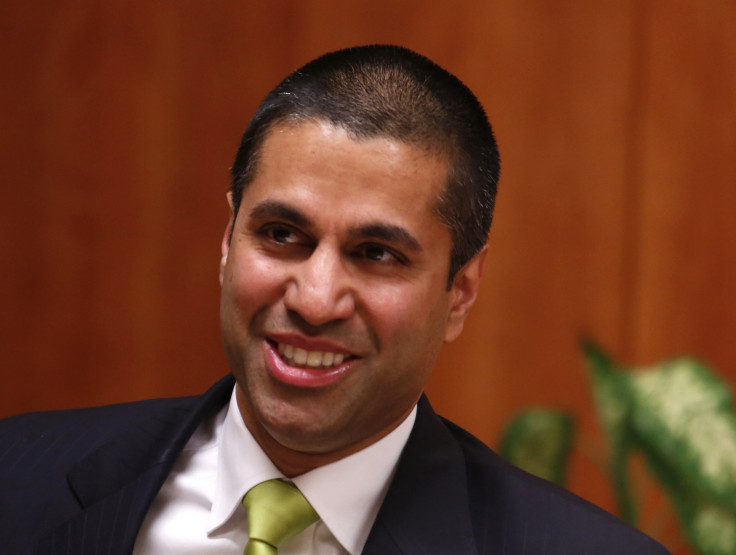Who Is Ajit Pai? What Could Happen To Net Neutrality Under Trump's New FCC Chair

President Donald Trump named the top Republican at the Federal Communications Commission, Ajit Pai, a vocal adversary of net neutrality, as chair of the agency Monday. Appointed to his current FCC commissioner seat by former President Barack Obama at the behest of Senate Majority Leader Mitch McConnell (R-Kentucky), Pai does not require confirmation by the Senate. He has served as legal counsel within the Senate Judiciary Committee and the Department of Justice, and is a former lawyer for Verizon Communications and the corporate law firm Jenner & Block LLP.
Pai also is a staunch critic of net neutrality, the concept that internet service providers shouldn’t give preference to some (high paying) sources of content while blocking others. In February 2015, the FCC, then chaired by net neutrality proponent Thomas Wheeler, who announced in December that he would be stepping down at the start of Trump’s term, adopted regulations in favor of the so-called “open internet”—which Pai battled publicly.
The February rule bars broadband providers from blocking or impairing access to legal content and applications. It also keeps providers from favoring some content over others by using what the FCC called "fast lanes" for internet traffic.
There is so much we can do together to bring the benefits of the digital age to all Americans and to promote innovation and investment.
— Ajit Pai (@AjitPai) January 23, 2017
I look forward to working with the new Administration, @FCC colleagues, members of #Congress, and the public on behalf of all Americans.
— Ajit Pai (@AjitPai) January 23, 2017
“I’ve not been shy about expressing my views on a great many subjects,” Pai told Politico back when the FCC was ironing out the new rule. “I’ve done my best to make sure that my views are expressed, whether through the spoken word or the pen.”
A U.S. appeals court upheld the FCC rule in June, rejecting a petition from telecom and wireless industry groups, AT&T, CenturyLink and other providers seeking to defend themselves from increased government oversight. Since then, Pai hasn’t backed down. In a December speech before the free market think tank Free State Foundation, Pai emphasized the need to “fire up the weed whacker and remove those rules that are holding back investment, innovation and job creation.”
Advocates of net neutrality claim favoring more financially privileged sources of content over others is unfair to anyone unable to pay for higher speeds or greater access, while those against it worry that providing equal access could effectively turn the internet into a public utility, giving the government new powers over what Americans can access online.
© Copyright IBTimes 2024. All rights reserved.












